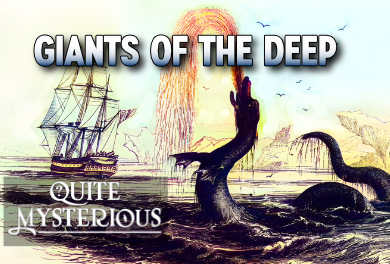Nature & Environment
August 19, 2024 · 4 comments
4 comments

An artist's impression of the dodo. Image Credit: Roelant Savery
The first reported encounter with a dodo was by Dutch sailors in 1598 and by 1662 the species had been completely wiped out due to hunting and the destruction of its habitat.
But what were these birds really like and what can we learn about them now ?
In a new study, researchers set out to put all the common misconceptions about the dodo to bed by looking through more than 400 years of scientific literature and collections.
They found that there was a lot of confusion about the dodo in the years after its demise.
"By the 18th and early 19th centuries, the Dodo and the Solitaire were considered to be mythological beasts," said lead author Dr. Mark Young from the University of Southampton.
"It was the hard work of Victorian-era scientists who finally proved that the Dodo and the Solitaire were not mythological but were giant ground doves."
There are also a lot of misconceptions about what the dodo was actually like in life.
"Was the Dodo really the dumb, slow animal we've been brought up to believe it was?" said Dr. Young.
"The few written accounts of live Dodos say it was a fast-moving animal that loved the forest."
"Evidence from bone specimens suggests that the Dodo's tendon which closed its toes was exceptionally powerful, analogous to climbing and running birds alive today."
"The dodo was almost certainly a very active, very fast animal."
Source: Phys.org | Comments (4)
Secrets of the long-lost dodo revealed in comprehensive new study
By T.K. RandallAugust 19, 2024 ·
 4 comments
4 comments
An artist's impression of the dodo. Image Credit: Roelant Savery
Much has been written about the dodo over the years, but very little of it is based on what these birds were like in life.
This iconic flightless bird, which once inhabited the island of Mauritius, is perhaps the best known example of a species hunted to extinction by man - a creature that has since become synonymous with the idea that our activities on this planet can have dire consequences for other species.The first reported encounter with a dodo was by Dutch sailors in 1598 and by 1662 the species had been completely wiped out due to hunting and the destruction of its habitat.
But what were these birds really like and what can we learn about them now ?
In a new study, researchers set out to put all the common misconceptions about the dodo to bed by looking through more than 400 years of scientific literature and collections.
They found that there was a lot of confusion about the dodo in the years after its demise.
"By the 18th and early 19th centuries, the Dodo and the Solitaire were considered to be mythological beasts," said lead author Dr. Mark Young from the University of Southampton.
There are also a lot of misconceptions about what the dodo was actually like in life.
"Was the Dodo really the dumb, slow animal we've been brought up to believe it was?" said Dr. Young.
"The few written accounts of live Dodos say it was a fast-moving animal that loved the forest."
"Evidence from bone specimens suggests that the Dodo's tendon which closed its toes was exceptionally powerful, analogous to climbing and running birds alive today."
"The dodo was almost certainly a very active, very fast animal."
Source: Phys.org | Comments (4)

The Unexplained Mysteries
Book of Weird News
AVAILABLE NOW
Take a walk on the weird side with this compilation of some of the weirdest stories ever to grace the pages of a newspaper.
Click here to learn more

Support us on Patreon
BONUS CONTENTFor less than the cost of a cup of coffee, you can gain access to a wide range of exclusive perks including our popular 'Lost Ghost Stories' series.
Click here to learn more
Russia and the War in Ukraine
United States and the Americas
Extraterrestrial Life and The UFO Phenomenon
Ancient Mysteries and Alternative History
Total Posts: 7,755,671 Topics: 324,285 Members: 203,568
Not a member yet ? Click here to join - registration is free and only takes a moment!
Not a member yet ? Click here to join - registration is free and only takes a moment!
































Please Login or Register to post a comment.